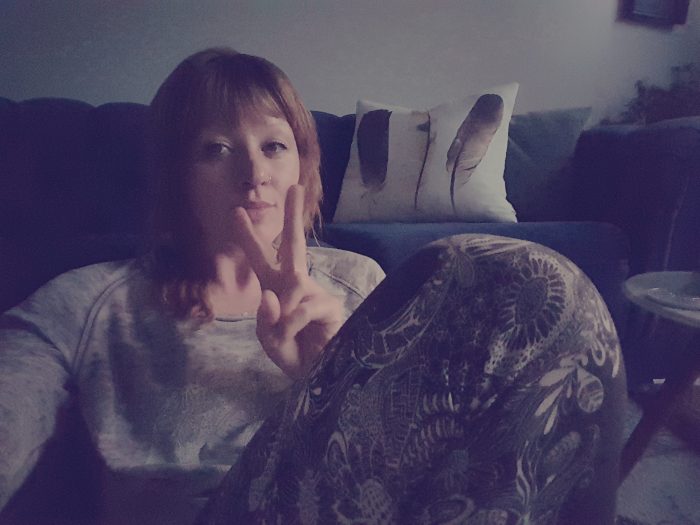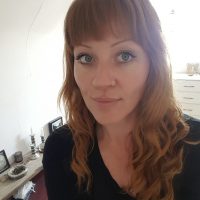This is not a typically inspirational story wherein my otherwise perfect life was suddenly and tragically interrupted.
I didn’t, for example, recover from my brain injury in an Instagram-able amount of time. My brain injury did not make me better at yoga, or more loving, inspired, or grateful, but I feel there is a need for the stories of guarded, introverted people who really struggle when bad things happen, and I did.
My story begins at 39, a year that seems to beg for a significant turn of events, and for me change was overdue.
Like many Canadians my age, I graduated from university in my mid- to late 20s only to find that the degree I had invested in simply did not exist. What followed was a decade of false starts—both jobs and relationships—where I became increasingly disillusioned, disconnected, unfulfilled, and lonely.
Even on the other side of the brutal turn of events I was about to face, I can say with full clarity that the years leading up to my brain injury were me at my lowest point. I had a long-established feeling of indebtedness and shame that led me to seek validation from others through service. I pursued situations of people in need so I could come and help with the hope that they would in turn reciprocate and help me with my crushing inner turmoil of needing to prove I deserved to be valued. I was a giver, but an enabler, and I found myself continuously rejected, misunderstood, and taken advantage of.
The person I had wanted more than my next breath made me understand that to him I was only an option. In that same time, my cat, my furnace, and my last grandparent died. When I later got dumped by text from one of the most beige and safe relationships I had ever had, I consoled myself of the rejection in my usual way: from within the realm of possibility.
I was going out with a new friend that Friday, and with that came the chance that my life could change. I could very well meet the man I had been waiting for, and connect with the soul family I desperately sought; my life could finally begin. I just needed to show up and be seen.
Deep into the night, I was waved over by the bartender who held up two glasses of water. One had less ice in it, which I kept for myself, and gave the colder one to my friend. I thought the water tasted funny, but I didn’t want to complain, so I grabbed a lemon to cover the taste, thinking it was just old ice or a bit of film from the dishwasher.
It would be over a year before I could remember this, and that I ignored the bartender and drunk business man guy staring hard into me as I did.
I quickly finished the water so we could go and dance, and maybe 15 minutes later I was unconscious on the floor, bleeding from my head. I had blacked out and fallen backward, smashing the back of my head trying to get to the door. I went out that night looking for my life to change, and had I landed less than two inches more to the right, it likely would have ended.
I was taken to the hospital by ambulance, where I was given a CT scan to ensure I was not bleeding inside my head. In and out of consciousness, and despite showing signs of intoxication with a negative blood alcohol, stable vitals, and no evidence of ischemic or glycemic episode, I was not given a blood toxicology to see if I had been drugged.
Dismissed by a doctor who told me the next morning that “even alcohol vapours can do it,” I got up, threw up, and called a cab from the hospital to get home. I had dried blood on my neck and face, urine in my clothes, and two staples in my scalp.
Like many injured people, I had no idea how badly I was hurt. I figured I would have a banger for a few days and then I would be okay. I had been a health care aide and knew how lucky I was that I wasn’t worse off. Still, days turned into weeks, and I found it increasingly difficult to stay awake. I had spots in my left eye. I often stuttered, slurred, and mixed words up, or went blank completely mid-sentence and would need minutes to resume speaking.
I regularly lost my short-term memory, and the pains in my head manifested into five different types of headache, some with strobing light tracers with nausea and trembling. I couldn’t look to the right without losing my balance and triggering an intense vertigo and tinnitus. My doctor began to talk about what symptoms may be permanent.
I was a wage employee and had no disability benefits, so I had to get back to work as soon as possible, but was ordered off work after six months when episodes of shaking and hallucination started that my doctor thought were seizures.
During the six-month wait for an MRI and left with still no idea what had made me black out, a grim history came to the table: when I was in university, my dad had a brain tumour. When I worked in palliative care, I met a relative on my dad’s side, younger than I, who was dying of a brain tumour. The next year, I heard that his mother also died of a brain tumor.
I drove myself to my MRI appointment in a mix of apprehension and fatalism that I may have inherited this apparent family trait. I was 40 years old: alone, broke, lonely, unfulfilled, and facing the reality that that might have been my best.
Fortunately, my MRI was clear and monthly check-ups with my Doctor proved that I was an exceptionally healthy person, apart from a traumatic brain injury. I was diagnosed with Post-Concussion Syndrome and encouraged to rest. But without knowing what had caused my injury and how I got it, neither my doctor nor I knew how to treat it. My need to “rest” turned into 632 days of isolation. I didn’t know my own story, and I was desperate for it to make sense as my life unravelled around me.
This need for it to make sense became the catalyst for the biggest change of my post-concussion life. So much of our identity is encoded in functional narrative. We define ourselves by what we do and a knitted together over-layer of nominatives and comparatives: daughter, sister, manager, single, artist—on and on, we associate ourselves with an invented narrative in a dialog of reconciliation that ties us in varying lengths to an idealized norm.
For me, most of these nominatives were based on abusive messages from toxic relationships. I was much more inclined to feel ashamed of myself for what I was not rather than empowered in an awareness of who I was.
Because of my brain injury, the neural pathways that carried the reinforcement of these self-limiting beliefs were broken. I couldn’t read a text message from the context of the relationship I had with that person before I got hurt, but instead simply read it as a black-and-white message of now. It was in this way that I started to see just how hurtful and toxic so many of my relationships actually were. And so I spoke back.
As time went on, I remembered more of the night and found I had sufficient reason to go to the police. They investigated and said they believed that I was drugged but did not have enough evidence to pursue arrest. The bartender simply refused to be questioned.
Once again, I had been victimized, and was being rejected, denied, and told that I wasn’t worth caring about. But I didn’t see it that way for long. I wrote a letter thanking the constable for giving me my story. I now knew what had happened to me, and I could reject all of the pain and responsibility of what had happened to me because I knew it was never mine to take.
For the first time in my life, I had boundaries and could say no, and I was taking ownership of a story that was not—and could never be—okay. I did this without assuming responsibility for why it happened.
I came to understand that my need for everything to make sense was a trauma response, and that what I had been doing was explaining away other people’s bad behaviour and denying my own feelings and fears. In all of my vast abilities to overthink a situation and see it from multiple perspectives, the last perspective I ever considered was my own. My brain injury broke me from that pattern.
Through attending my doctor’s appointments, reviewing my ambulance report and police investigation, searching painfully strobing webpages linking lobes and symptoms, and spending endless hours alone in bed in helpless prayer, I was looking for the way for my situation and experience to make sense. I needed to find my story, and in trying to build one in the murky suspension of a painfully injured brain, I began to, instead, unravel the knot work of the mind I had before I was concussed.
My brain injury gave me the reason to finally put my needs first and see why I had become so dependent on narrative in the first place. I saw how wounded I was before I got hurt, and I learned to show up and be seen for me, that I deserved to care for myself and be met with the same hope and kindness that I had invested in others.
At the time of writing, it has been 2.7 years since my brain injury, and my symptoms are reduced to about 30 percent. I was diagnosed with PTSD six months ago and given an optimistic prognosis that my hippocampus is fine and my Post-Concussion Syndrome should resolve within the year.
I know I will never be the same as I was before my brain injury, but because of the permanent amnesia that separates who I was before I got hurt with who I am now, I have been blessed to continue to exist in the realm of possibility as is my most favoured way to be, and it is here that I shall find the person that I am finally ready to become.

 Share on bsky
Share on bsky







Read 6 comments and reply